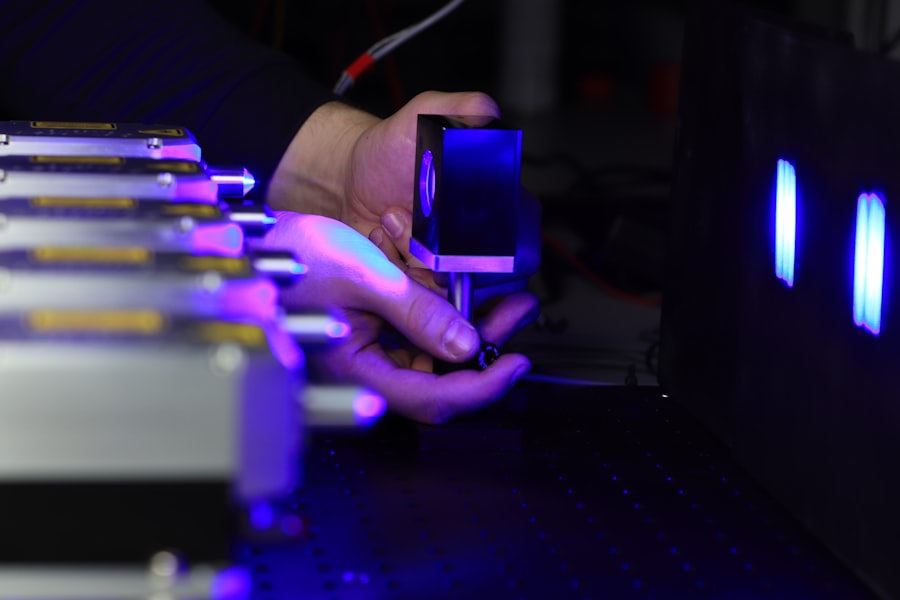Dark skin, also known as melanated skin, contains higher levels of melanin, which is the pigment that gives skin its color. This higher melanin content provides natural protection against the sun’s harmful UV rays, making dark skin less prone to sunburn and skin cancer. However, when it comes to laser hair removal, the higher levels of melanin in dark skin can pose some challenges. Traditional laser hair removal techniques target the melanin in the hair follicles, which can also inadvertently target the melanin in the skin, leading to potential risks and complications.
Furthermore, dark skin comes in a wide range of tones and shades, each with its own unique characteristics. For example, individuals with darker skin tones may have coarser hair and a higher density of hair follicles, which can impact the effectiveness of laser hair removal treatments. It’s important for individuals with dark skin to seek out providers who have experience working with diverse skin tones and understand the specific needs and challenges associated with laser hair removal for dark skin.
Key Takeaways
- Dark skin has more melanin, which can make laser hair removal more challenging and increase the risk of complications
- Potential risks and complications of laser hair removal on dark skin include burns, hyperpigmentation, and scarring
- It is important to find a provider with experience and expertise in treating dark skin to minimize the risks and complications
- Before laser hair removal, it is important to prepare by avoiding sun exposure, shaving the treatment area, and following any other specific instructions from the provider
- Aftercare for laser hair removal on dark skin may include using gentle skincare products, avoiding sun exposure, and following the provider’s recommendations for maintenance
- Alternative hair removal methods for dark skin include shaving, waxing, and depilatory creams, but they may not be as effective or long-lasting as laser hair removal
- Realistic expectations for laser hair removal on dark skin include understanding that multiple sessions may be needed for optimal results and that complete hair removal may not be possible
Potential Risks and Complications
Laser hair removal for dark skin carries a higher risk of complications compared to lighter skin tones. The main concern is the potential for the laser to inadvertently target the melanin in the skin, leading to burns, hyperpigmentation, or hypopigmentation. Burns can occur if the laser energy is too high or if the skin is not properly cooled before and after treatment. Hyperpigmentation refers to darkening of the skin, while hypopigmentation refers to lightening of the skin, both of which can be long-lasting or even permanent.
In addition to these risks, individuals with dark skin may also be more prone to developing keloid scars in response to the laser treatment. Keloid scars are raised, thickened scars that extend beyond the original wound site and can be difficult to treat. It’s crucial for individuals with dark skin to find a provider who is experienced in working with diverse skin tones and understands how to minimize these risks and complications.
Finding an Experienced Provider
When seeking laser hair removal for dark skin, it’s essential to find a provider who has experience working with diverse skin tones and understands the specific needs and challenges associated with darker skin. Look for a provider who has a track record of successfully treating individuals with dark skin and who can provide before-and-after photos of their work. Additionally, seek out providers who use FDA-approved lasers specifically designed for safe and effective use on darker skin tones.
It’s also important to schedule a consultation with the provider before committing to treatment. During the consultation, ask about their experience working with dark skin, inquire about the specific laser technology they use, and discuss any concerns or questions you may have. A reputable provider will take the time to address your concerns and develop a personalized treatment plan tailored to your unique skin type and hair characteristics.
Preparing for Laser Hair Removal
| Aspect | Information |
|---|---|
| Preparation | Avoid sun exposure and tanning beds before treatment |
| Shaving | Shave the treatment area before the appointment |
| Medications | Avoid certain medications like blood thinners before treatment |
| Cosmetics | Avoid using cosmetics or lotions on the treatment area |
Before undergoing laser hair removal treatment, there are several steps individuals with dark skin can take to prepare for the procedure. First and foremost, it’s crucial to avoid sun exposure and tanning beds in the weeks leading up to the treatment. Sun exposure can increase the risk of complications and interfere with the effectiveness of the laser treatment.
Additionally, individuals should refrain from waxing, plucking, or using depilatory creams in the treatment area for at least six weeks prior to the laser hair removal session. These hair removal methods can disrupt the hair follicles and interfere with the laser’s ability to target them effectively.
It’s also important to follow any specific pre-treatment instructions provided by the provider, such as shaving the treatment area before the session and avoiding certain skincare products that may increase sensitivity to the laser. By following these preparatory steps, individuals can help ensure a safe and effective laser hair removal experience for their dark skin.
Aftercare and Maintenance for Dark Skin
After undergoing laser hair removal treatment, individuals with dark skin should follow specific aftercare instructions to promote healing and minimize the risk of complications. It’s common for the treated area to be sensitive and slightly red immediately following the session, so it’s important to keep the area clean and avoid any harsh or irritating skincare products.
Additionally, individuals should protect their skin from sun exposure by applying sunscreen with a high SPF to the treated area whenever it is exposed to sunlight. Sun protection is crucial for preventing hyperpigmentation and other pigmentation changes that can occur as a result of laser treatment on dark skin.
As for maintenance, individuals may need multiple sessions to achieve optimal results, as hair grows in different cycles and not all follicles will be in the active growth phase during the initial treatment. It’s important to follow the provider’s recommended treatment schedule and attend all scheduled sessions to achieve the best possible outcome for laser hair removal on dark skin.
Alternative Hair Removal Methods for Dark Skin

For individuals with dark skin who are not suitable candidates for laser hair removal or prefer alternative methods, there are several options available. One popular alternative is electrolysis, a method that uses a fine needle to destroy individual hair follicles with an electric current. Electrolysis is suitable for all skin types and hair colors and can be an effective long-term solution for hair removal.
Another alternative is intense pulsed light (IPL) therapy, which uses broad-spectrum light to target hair follicles. While IPL can be effective for some individuals with dark skin, it may not be as precise or effective as laser hair removal for darker skin tones.
Additionally, traditional methods such as shaving, depilatory creams, and waxing can also be used for hair removal on dark skin, although these methods may require more frequent maintenance and can lead to issues such as ingrown hairs.
Realistic Expectations for Laser Hair Removal on Dark Skin
It’s important for individuals with dark skin to have realistic expectations when considering laser hair removal. While laser technology has advanced significantly in recent years, it may still be more challenging to achieve complete hair removal on darker skin tones compared to lighter skin tones.
Individuals with dark skin should expect a reduction in hair growth rather than complete elimination after a series of laser treatments. Additionally, they should be prepared for potential risks and complications such as temporary changes in pigmentation or scarring.
By finding an experienced provider who understands the specific needs of dark skin and following proper pre- and post-treatment care, individuals can minimize these risks and achieve satisfactory results from laser hair removal. It’s important to have open and honest communication with the provider about expectations and concerns to ensure a positive experience and successful outcome for laser hair removal on dark skin.
If you have dark skin and are considering laser hair removal, there are important factors to consider. It’s crucial to understand the potential impact of medication on the procedure. In a related article on InLaserHairRemoval.com, “Can I Get Laser Hair Removal If I’m on Medication?” provides valuable insights into this topic. Understanding the effects of medication on laser hair removal is essential for achieving safe and effective results. Be sure to check out this informative article to gain a comprehensive understanding of the considerations involved in laser hair removal for dark skin.
FAQs
What is laser hair removal?
Laser hair removal is a cosmetic procedure that uses a concentrated beam of light (laser) to remove unwanted hair. The laser targets the pigment in the hair follicle, damaging the follicle and inhibiting future hair growth.
Is laser hair removal safe for dark skin?
Yes, laser hair removal can be safe for dark skin, but it is important to use the appropriate laser technology and settings to minimize the risk of skin damage or discoloration. It is crucial to seek out a qualified and experienced practitioner who has expertise in treating dark skin.
What are the potential risks for laser hair removal on dark skin?
The potential risks for laser hair removal on dark skin include skin discoloration, burns, and scarring. These risks can be minimized by using the appropriate laser technology and settings for dark skin tones.
What type of laser is best for dark skin?
For dark skin, it is best to use a laser that has longer wavelengths, such as Nd:YAG or diode lasers. These lasers are safer for dark skin because they are less likely to affect the pigment in the skin, reducing the risk of discoloration or burns.
How many sessions are needed for laser hair removal on dark skin?
The number of sessions needed for laser hair removal on dark skin can vary depending on the individual and the area being treated. Generally, multiple sessions are required to target hair follicles in different stages of growth and achieve long-lasting results.
What should I expect during and after laser hair removal on dark skin?
During laser hair removal, you may experience some discomfort or a sensation of heat as the laser targets the hair follicles. After the treatment, you may experience redness or mild swelling, but these side effects typically subside within a few hours to a few days. It is important to follow post-treatment care instructions provided by your practitioner.





